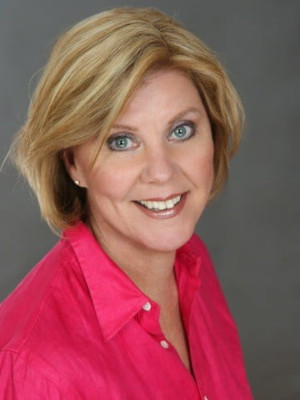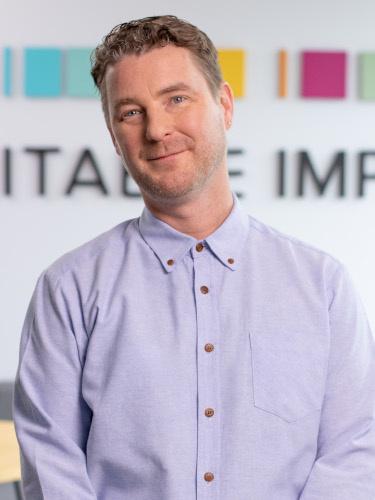This is one in a series of articles in our special report, “The Changing Face of Philanthropy in Canada.” To see other parts of this series, click here.
Always philanthropic in nature, more high-net-worth women than ever are donating to charitable causes. In doing so, they are changing the philanthropic world as well.
“Women are giving more and they’re giving in larger amounts,” says Nancy Griffin, founder and president of Women, Worth and Wellness, which promotes women’s health, wealth, philanthropy and legacy planning in Prince Edward County, Ont.
Griffin predicts the coming intergenerational wealth transfer will result in more donations on the part of women, as well.

“They’re in a position of not just earning money that they’re directing—they’re now stewarding incredible amounts of wealth,” she says. “And that’s the new power reality.”
According to Statistics Canada, donations by women from 2011 to 2023 increased 287 per cent, with a total of $4.3 billion given in 2021 alone.
Unlike men, women tend to engage in more due diligence and collaborative giving, focusing on education, advocacy and social causes such as climate change and mental health, says Susan Phillips, professor, Master of Philanthropy and Non-profit Leadership at Carleton University in Ottawa.
They’re also quieter about their donations and see charitable giving as a way of making change rather than leaving a legacy associated with their name and wealth. “We still haven’t seen a lot of hospitals named after a woman,” says Griffin.
As a result, female donors need specialized guidance regarding their philanthropic options, the impact charities are having and what other philanthropists are doing, Phillips says. They also want as many metrics as possible.
“A lot of it is just the conversations around impact, innovation and philanthropy,” she says. “How do you move along that journey?”
Not a new trend
While more ultra-high-net-worth women are making donations—such as the $500-million bequest by Marion Bergen, a Winnipeg business owner who died in 2022—charitable giving by women isn’t necessarily new.
“Women have played an incredibly vital role the whole way through philanthropy—they just haven’t gotten the credit,” says John Bromley, CEO and founder of Charitable Impact, a Vancouver-based giving platform that operates as a donor-advised fund (DAF).
Women have historically managed household budgets, but they’ve also done the lion’s share of volunteering at nonprofits and served on boards.

Plus, many have grown up in households where giving was part of the family’s fabric. In many cases, “they’ve got some family ethos,” Bromley says, and being generous and giving has become normalized.
It’s not surprising that they tend to donate in unpretentious fashion, says Griffin. “Their philanthropy is much quieter. Women don’t want to be seen as somebody who’s strutting their stuff—especially in front of other women.”
Phillips says women tend to do more due diligence, often engaging with organizations well in advance of donating.
They also seek the support of other female givers, aligning their goals in collaborative groups such as giving circles, made up of like-minded people who pool their money and time to give to charities or community groups.
She says women collectively decide on what they want to give, learn more about these giving opportunities and then “make giving decisions from there. So that group engagement is an important part of what can become individual gifts,” says Phillips.
Donations from female donors are also closely aligned with their values, she says, whether that’s indigenous causes, climate change or mental health.
It’s that under-the-radar commitment to social causes that really differentiates male and female donors, says Bromley. “I think that men are kind of using philanthropy to advance their personal and/or business concerns, whereas women are a little bit more authentic,” he says.
He sees a lot of female entrepreneurs in their 30s and 40s who are becoming more prominent givers.
“Women now have a way stronger role in the entrepreneurial world, and they’re kicking butt,” he says. “Those women are some of the strongest, most important philanthropists that we’re seeing emerge in Canada and the United States.”
What female philanthropists need
Bromley says education is key. “Generally speaking, there’s a lack of charity literacy in Canada more than a lack of generosity.”
Phillips says many female would-be philanthropists want to contribute but simply aren’t aware of the opportunities that exist. That means advisors need to help clients find options that resonate with their financial and personal goals.

“If we really want to incentivize and make philanthropy more impactful, it’s that education piece—knowing what the giving options are and how to assess impact,” she says.
Griffin says female donors need to work with sophisticated advisors who can help them understand the power of their philanthropy, “not just in terms of who you’re supporting but also as a way of enhancing your own net worth” through savings on taxes.
Advisors should also ask clients whether they would like to be role models. She suggests asking, “What is your legacy right now? What do you want to be when you’re gone? Do you want to set an example for other generations?”
It takes a trusted advisor to start those conversations, she adds. “It’s really getting at the core, the heart, of who that person is.”
Bromley says that once a client’s mission and goals are established, she should learn about methods of giving that can help her make a difference, whether that’s through direct giving, charitable trusts, donor-advised funds, or a charitable investment account that allows donors to recommend how their money is distributed to charities.
Join Canadian Family Offices on February 21 for our online panel discussion about the state of giving in Canada. Register here.
Looking into the future, Bromley predicts increasing donations from high-net-worth female donors, simply because wealthier women are coming up through the ranks who will continue to give as their counterparts did before them.
“They are continuing the strong history of women’s involvement with giving back as they grow in wealth.”
The Canadian Family Offices newsletter comes out on Sundays and Wednesdays. If you are interested in stories about Canadian enterprising families, family offices and the professionals who work with them, but like your content aggregated, you can sign up for our free newsletter here.
Please visit here to see information about our standards of journalistic excellence.



